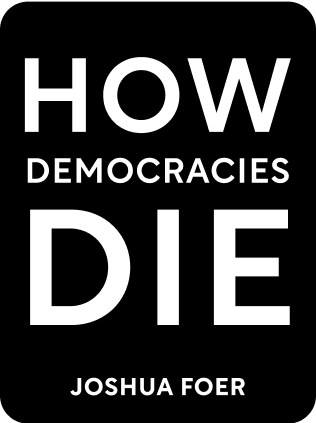

This article is an excerpt from the Shortform book guide to "How Democracies Die" by Steven Levitsky and Daniel Ziblatt. Shortform has the world's best summaries and analyses of books you should be reading.
Like this article? Sign up for a free trial here .
Why did Trump condemn mainstream media? How did Trump’s “fake news” accusation become a propaganda tool?
It’s not a secret that Donald Trump didn’t shy away from throwing around unfounded accusations. Trump’s infamous “fake news” was a good example of that. The former president effectively weaponized the term against mainstream media that gave unfavorable coverage to his administration.
Here is what really lies behind Donald Trump’s favorite phrase.
Trump’s Anti-Media Campaign
Trump, argue Levitsky and Ziblatt, attempted to sideline his opponents through his attacks on the mainstream media. Trump routinely labeled mainstream media, which tended to give unfavorable coverage to his administration, as “fake news.” Trump argued that the media was inflexibly biased against him and that voters should disregard what outlets like CNN, the Washington Post, and the New York Times reported about his administration.
Levitsky and Ziblatt contend that the president viewed the media as his opponents and saw launching these attacks on them as a way to discredit it—and signal to his supporters that he was the only source of truth. The authors argue that this anti-media campaign helped to condition GOP voters to live in an alternative-facts universe, while raising support for various forms of media repression among them.
The 2020 Election, Voter Fraud Claims, and Alternative Reality
Although it was impossible for Levitsky and Ziblatt to see into the future after their publication of How Democracies Die in 2018, evidence from later in Trump’s term—and after his defeat in the 2020 election—suggests that his efforts to create an alternative-information universe for Republican voters have been successful.
We discussed earlier in this guide how Trump refused to accept the legitimacy of the 2020 election results, citing widespread voter fraud against him (despite even his own Justice Department finding zero credible evidence to support his charges). But this refusal to accept the reality of the election results appears to have caught on with the vast majority of the GOP base. After the election was called for Joe Biden, a Politico/Morning Consult poll showed that 70% of Republicans believe that the election was unfair and rife with fraud, compared with 90% of Democrats who accepted that the election was legitimate.

———End of Preview———
Like what you just read? Read the rest of the world's best book summary and analysis of Steven Levitsky and Daniel Ziblatt's "How Democracies Die" at Shortform .
Here's what you'll find in our full How Democracies Die summary :
- How shared norms are essential for preserving democracy
- Why the Trump presidency threatened those shared norms
- Why democracy goes beyond individual leaders and parties and must be a shared enterprise among committed individuals






